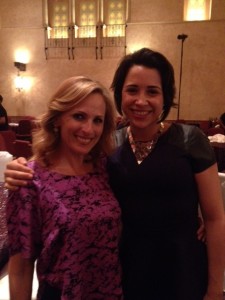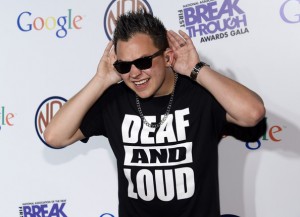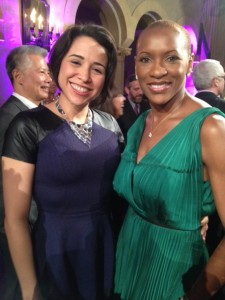 Picture this: you are a little kid growing up, constantly discovering incredible new things about the world. Now imagine being surrounded every day by people who do not talk to you, tell you stories, or answer your millions of questions. These people are your own parents and siblings. You all live in the same home, yet they hardly communicate with you. They are not able to teach you, guide you, or to provide comforting words when you need them. In fact, they mostly avoid you. This is the experience of many deaf children.
Picture this: you are a little kid growing up, constantly discovering incredible new things about the world. Now imagine being surrounded every day by people who do not talk to you, tell you stories, or answer your millions of questions. These people are your own parents and siblings. You all live in the same home, yet they hardly communicate with you. They are not able to teach you, guide you, or to provide comforting words when you need them. In fact, they mostly avoid you. This is the experience of many deaf children.
For a hearing parent, learning that your baby is deaf might be a bit of a shock. Confusion is a common response, given our society’s unfortunate lack of understanding about deaf culture. Excited new parents are delivered the news by medical professionals in a sobering way. Hearing a doctor imply that your child is disabled is almost guaranteed to stir up some panic!
Communication With A Deaf Child
 So, instead of accepting the perfect gift they have been given and embracing the opportunity to explore deaf communication, hearing parents might immediately label their beautiful deaf newborn as defective. They might hunt for a way to “fix” their baby, or try teaching their child to communicate using sound like “normal” people. Or maybe they simply abandon hope that they’ll ever be able to relate to their deaf child at all. This truly breaks my heart.
So, instead of accepting the perfect gift they have been given and embracing the opportunity to explore deaf communication, hearing parents might immediately label their beautiful deaf newborn as defective. They might hunt for a way to “fix” their baby, or try teaching their child to communicate using sound like “normal” people. Or maybe they simply abandon hope that they’ll ever be able to relate to their deaf child at all. This truly breaks my heart.
Let me tell you a personal anecdote. Last year, I hired interpreters for a large family gathering because my mother and siblings are all deaf, while my mother’s family is hearing. Being a CODA, I have served as the “interpreter” for many many family events. Finally, I decided to enlist the help of some professionals so I could just relax and enjoy the party.
Throughout the evening, it was moving to witness the interactions between my deaf family and my hearing family using the interpreters. Never before had they been able to experience each other in such a way! With two neutral, professional interpreters relaying even the littlest bits of small talk, we were all able to participate in conversations equally. I saw my hearing aunts really getting to know my deaf nieces for the first time. Almost every member of my family raved about how amazing it was to have interpreters. Every family member, except one.
 Growing up the only deaf person in your household can be extremely isolating. If your family chooses not to learn sign language, it is hard to express yourself comfortably. For my mother, the opportunity to communicate with her parents and siblings just felt like it came too late. After a lifetime of feeling excluded from your own family, believing they never really got to know you, how do you make up for lost time? What is there to talk about?
Growing up the only deaf person in your household can be extremely isolating. If your family chooses not to learn sign language, it is hard to express yourself comfortably. For my mother, the opportunity to communicate with her parents and siblings just felt like it came too late. After a lifetime of feeling excluded from your own family, believing they never really got to know you, how do you make up for lost time? What is there to talk about?
When my mother was growing up, there weren’t many resources for raising deaf children and interpreting was only a developing field. Of course she appreciated the fact that I hired interpreters for our family event but… after decades of not communicating, forming a connection is not so simple. All children want to feel like they belong in their own family and a lifetime of feeling marginalized can’t just be erased. Certainly not in one evening.
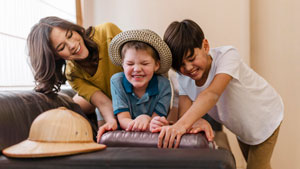 Deafness doesn’t have to be isolating. Since I was raised in a deaf family, I can tell you: deafness is nothing to be afraid of! The ability to hear sound is not what makes a person whole. It is not what gives a person their personality. The ability to hear sound is not what determines a person’s intelligence, and it doesn’t have to limit one’s life. Perhaps not enough hearing people take note of the deaf community members living happy lives around them. There are plenty of successful business owners, artists, and athletes who use sign language to communicate.
Deafness doesn’t have to be isolating. Since I was raised in a deaf family, I can tell you: deafness is nothing to be afraid of! The ability to hear sound is not what makes a person whole. It is not what gives a person their personality. The ability to hear sound is not what determines a person’s intelligence, and it doesn’t have to limit one’s life. Perhaps not enough hearing people take note of the deaf community members living happy lives around them. There are plenty of successful business owners, artists, and athletes who use sign language to communicate.
There are few things more bonding than learning a language together. Discovering sign language with your deaf infant promises both of you a richer life and a closer relationship. By accepting your child’s abilities and taking the time to access their world from a young age, you also give them access to yours. You will be able to share stories and jokes, and get to know each other. It is more intuitive for deaf babies to learn a physical language, than one which relies on sound. When deaf individuals are not struggling to live a hearing lifestyle in their own home, they can focus on growing in other areas.
 Sign language is the most natural form of communication for deaf people around the globe. Research has shown that in any society where there is a concentration of deafness, signed languages have developed. Humans have a strong desire to express ourselves– relationships form and strengthen through communication. For deaf children, having parents and siblings to use sign language with can truly mean the world. Because, when you are a kid, your family IS your whole world.
Sign language is the most natural form of communication for deaf people around the globe. Research has shown that in any society where there is a concentration of deafness, signed languages have developed. Humans have a strong desire to express ourselves– relationships form and strengthen through communication. For deaf children, having parents and siblings to use sign language with can truly mean the world. Because, when you are a kid, your family IS your whole world.
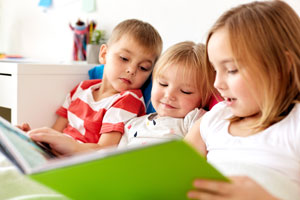 I have 10 years experience working with toddlers and I am professionally certified in all levels of ASL, including baby signs. I am thrilled to offer ASL baby sign language lessons for parents! Babies, whether deaf or hearing, are able to express themselves as early as 6 months using signs. Being able to communicate from a young age boosts confidence and builds self-esteem in children. Sign language also aids in cognitive development and have been shown to improve a child’s ability to acquire other languages.
I have 10 years experience working with toddlers and I am professionally certified in all levels of ASL, including baby signs. I am thrilled to offer ASL baby sign language lessons for parents! Babies, whether deaf or hearing, are able to express themselves as early as 6 months using signs. Being able to communicate from a young age boosts confidence and builds self-esteem in children. Sign language also aids in cognitive development and have been shown to improve a child’s ability to acquire other languages.
Sign Language lessons make the perfect gift for new mothers or mothers-to-be! In celebration of Mother’s Day, I am running a special on one-to-one ASL training: 2 one-hour lessons for $99. My private lessons provide not only sign language training, but insight into cultural norms and deaf history, as well. Lessons are customized to fit your skill level and learning style, and can be scheduled at your own convenience! We can meet in person, in the NYC area, or remotely via video chat.
I AM RUNNING A TWITTER CONTEST THIS WEEK! ONE LUCKY PERSON WINS A FREE ASL LESSON. Keep it for yourself or give it as a gift! CLICK HERE FOR MORE DETAILS. The winners will be announced on Friday May 9. ENTER TO WIN!
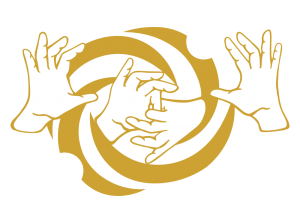











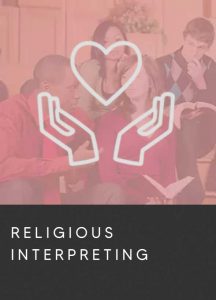
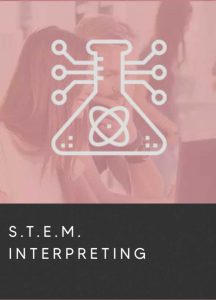
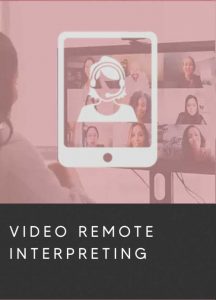
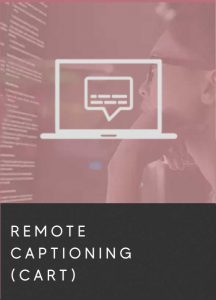

 Picture this: you are a little kid growing up, constantly discovering incredible new things about the world. Now imagine being surrounded every day by people who do not talk to you, tell you stories, or answer your millions of questions. These people are your own parents and siblings. You all live in the same home, yet they hardly communicate with you. They are not able to teach you, guide you, or to provide comforting words when you need them. In fact, they mostly avoid you. This is the experience of many deaf children.
Picture this: you are a little kid growing up, constantly discovering incredible new things about the world. Now imagine being surrounded every day by people who do not talk to you, tell you stories, or answer your millions of questions. These people are your own parents and siblings. You all live in the same home, yet they hardly communicate with you. They are not able to teach you, guide you, or to provide comforting words when you need them. In fact, they mostly avoid you. This is the experience of many deaf children. So, instead of accepting the perfect gift they have been given and embracing the opportunity to explore deaf communication, hearing parents might immediately label their beautiful deaf newborn as defective. They might hunt for a way to “fix” their baby, or try teaching their child to communicate using sound like “normal” people. Or maybe they simply abandon hope that they’ll ever be able to relate to their deaf child at all. This truly breaks my heart.
So, instead of accepting the perfect gift they have been given and embracing the opportunity to explore deaf communication, hearing parents might immediately label their beautiful deaf newborn as defective. They might hunt for a way to “fix” their baby, or try teaching their child to communicate using sound like “normal” people. Or maybe they simply abandon hope that they’ll ever be able to relate to their deaf child at all. This truly breaks my heart. Growing up the only deaf person in your household can be extremely isolating. If your family chooses not to learn sign language, it is hard to express yourself comfortably. For my mother, the opportunity to communicate with her parents and siblings just felt like it came too late. After a lifetime of feeling excluded from your own family, believing they never really got to know you, how do you make up for lost time? What is there to talk about?
Growing up the only deaf person in your household can be extremely isolating. If your family chooses not to learn sign language, it is hard to express yourself comfortably. For my mother, the opportunity to communicate with her parents and siblings just felt like it came too late. After a lifetime of feeling excluded from your own family, believing they never really got to know you, how do you make up for lost time? What is there to talk about? Deafness doesn’t have to be isolating. Since I was raised in a deaf family, I can tell you: deafness is nothing to be afraid of! The ability to hear sound is not what makes a person whole. It is not what gives a person their personality. The ability to hear sound is not what determines a person’s intelligence, and it doesn’t have to limit one’s life. Perhaps not enough hearing people take note of the deaf community members living happy lives around them. There are plenty of successful business owners, artists, and athletes who use sign language to communicate.
Deafness doesn’t have to be isolating. Since I was raised in a deaf family, I can tell you: deafness is nothing to be afraid of! The ability to hear sound is not what makes a person whole. It is not what gives a person their personality. The ability to hear sound is not what determines a person’s intelligence, and it doesn’t have to limit one’s life. Perhaps not enough hearing people take note of the deaf community members living happy lives around them. There are plenty of successful business owners, artists, and athletes who use sign language to communicate. Sign language is the most natural form of communication for deaf people around the globe.
Sign language is the most natural form of communication for deaf people around the globe.  I have 10 years experience working with toddlers and I am professionally certified in all levels of ASL, including baby signs.
I have 10 years experience working with toddlers and I am professionally certified in all levels of ASL, including baby signs. 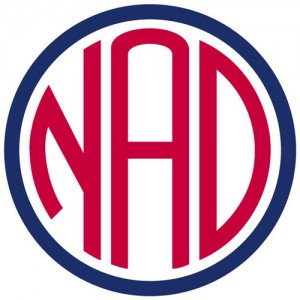 Last week, I had the pleasure of attending the first ever NAD Breakthrough Awards Gala in Hollywood. Throughout the evening, we celebrated the past, present, and future of deaf issues in cinema and TV. I had privilege of sharing a room with some of the most prominent deaf figures in popular culture. This landmark event was held as a benefit for the
Last week, I had the pleasure of attending the first ever NAD Breakthrough Awards Gala in Hollywood. Throughout the evening, we celebrated the past, present, and future of deaf issues in cinema and TV. I had privilege of sharing a room with some of the most prominent deaf figures in popular culture. This landmark event was held as a benefit for the 